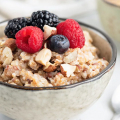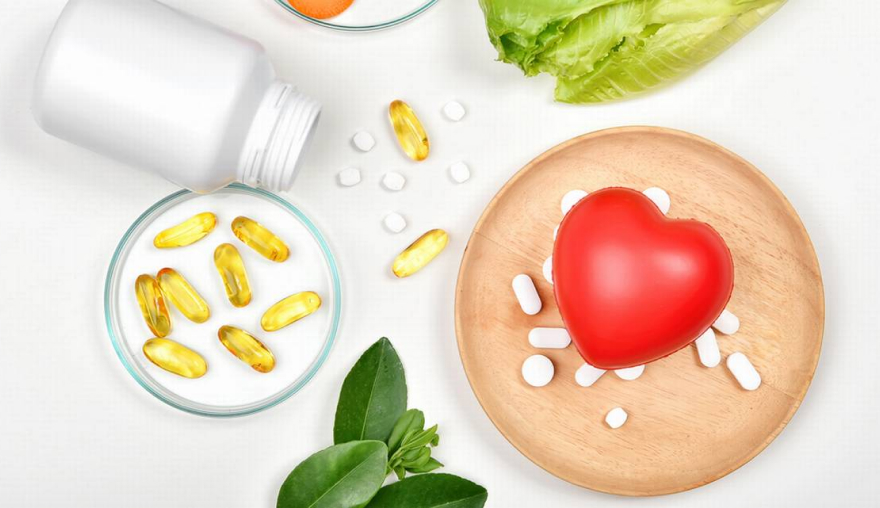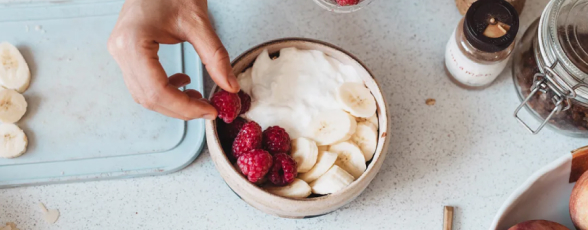Diabetes is currently one of the most common diseases in the world. There are over 1.45 million people with type 2 diabetes in Australia, and these are just identified and confirmed cases. According to many endocrinologists, you should increase the figure by 20% due to undiagnosed cases.
Doctors have prescribed Metformin to Australians with this condition for many years. This medicine provides excellent results and has a good safety profile. To get the most benefit from Metformin, you should meet several requirements, and we discuss some of them in this article.
Foods to avoid while taking Metformin
Metformin is a drug usually available as a tablet, less commonly as a powder or solution. You should take it orally (1-3 times a day) before or after meals. Taking the medicine after meals is the basic rule to avoid some adverse side effects (nausea, abdominal discomfort, etc.), which are especially common at the start of treatment.
Considering that improving eating habits is the main part of diabetes treatment, knowing what foods to eat is vital. In this article, we go through different types of foods and nutrients harmful to people with diabetes and explain why limiting their consumption is essential.
Saturated and trans fats
Excessive consumption of saturated fatty acids (found in fatty pork, eggs, palm oil, etc.) has long been considered a serious risk to the health of heart and blood vessels, primarily due to the potential adverse effect on blood cholesterol levels.
Today, the opinion of nutritionists about such fats is slightly different, but you should not consume them in large quantities if you have diabetes. Remove from your diet foods that, along with saturated fatty acids, contain a lot of salt, trans fats, preservatives, and other harmful substances.
Sodium
Sodium (salt) consumption does not directly affect the action of Metformin and blood sugar levels. However, diabetes management programs recommend limiting this microelement.
Lower salt consumption will help prevent vascular diseases that people with diabetes often have. If you have diabetes and high blood pressure, eating less than 2400 mg of sodium will benefit your health.
Simple and refined carbs
Can I eat sugar while taking Metformin? Of course not. If you’ve started taking diabetes drugs, that’s no reason to resume eating sugar.
Just like before treatment began, you should eliminate simple and refined carbs from your diet or minimize their consumption. At the same time, carbs are necessary for energy supply. Low-glycemic foods are perfect for this purpose.
High-fiber foods
High-fiber foods bring many benefits to both the diet and the body. However, it is known that too much fiber in the gastrointestinal tract slows down the absorption of most oral medications, without reversing their effects though. Given that, usually, you should take Metformin 2 or 3 times a day at about the same intervals, fiber is not expected to affect Metformin significantly.
Alcohol
Combined with Metformin, alcohol:
- Increases the risk of hypoglycemia (with such symptoms as inability to concentrate, weakness, impaired speech, convulsions, and drowsiness).
- Increases lactic acid metabolism and can cause lactic acidosis (with such symptoms as fatigue, increased heartbeat, muscle pain, nausea, or vomiting).
- May cause or worsen other side effects.
Alcohol can harm the health of anyone, even those without chronic diseases. People with diabetes should minimize alcohol consumption if they have one of the following conditions: diabetes complications, overweight, obesity, high blood triglycerides, etc.
Foods to avoid when taking Metformin for PCOS
One of the best ways to deal with PCOS is to make a list of do’s and don’ts and stick to it. It is important to know what nutrients the foods we eat contain and which foods are good or risky when consumed regularly.
Here are the things you should remember:
- A low-carb diet improves insulin sensitivity in women with polycystic ovary syndrome.
- Weight loss is the first thing to do for people with obesity and PCOS.
- People with PCOS may have metabolic syndrome or diabetes in the future. So, they will require long-term treatment even after menopause.
Based on the above, you can make a list of foods you should avoid, including:
- Sugar.
- Refined carbs.
- Foods containing trans fats.
- Red meat.
- Processed meat products.
- Fried foods.
You should pay particular attention to sugar and refined carbs. These foods are related to many health problems. Avoiding them or minimizing their consumption can be important for improving hormonal function and preventing diabetes, overweight, and other diseases.
It has been proven that diets high in sugar and refined carbs lead to excess weight and, consequently, to insulin resistance. A healthy diet can lower blood insulin levels and increase insulin sensitivity.
Foods to eat when taking Metformin for weight loss
We recognize that to enjoy good health and physical fitness, it is necessary to provide our body with essential proteins, fats, and carbs. But it’s important to balance your diet and choose your sources of these nutrients carefully.
Excess weight triggers the mechanism of insulin resistance, which is already one of the main symptoms of diabetes. That is why it is so important to control weight and amounts! Let’s find out what foods will help shed extra pounds.
Complex carbohydrates
According to general advice for diabetes management, carbs should provide about 55% of your calorie requirements, which is more than half. Proteins make up about 20%, and fats — about 25%. This distribution is not definitive and may vary depending on the different diseases and needs of the person.
The following foods contain complex carbohydrates (with low glycemic index):
- Legumes (white beans, yellow peas, green peas, etc.).
- Bread (bread with oat bran and honey, multigrain bread, rye bread, etc.).
- Breakfast flakes (oat bran, psyllium bran, shredded wheat, couscous, etc.).
- Grains (millet, rice bran, bulgur, barley, etc.).
- Vegetables (carrots, asparagus, broccoli, Brussels sprouts, etc.).
Complex carbs are perfect when you need a steady energy level. Such carbohydrates have large molecules that digest gradually in the stomach and intestines, taking longer to turn into glucose.
Healthy fats
You can divide fats into two categories: fats of animal and plant origin. Your diet should include limited amounts of animal fats, which are rich in saturated fats. Their consumption determines the blood level of low-density lipoprotein (LDL), which is responsible for increased cardiovascular risk in humans.
Plant-based foods are rich in high-density lipoprotein (HDL), or “good” cholesterol. Higher HDL levels reduce the risk of cardiovascular diseases.
Subscribe to our blog
Get the latest insights.
Lean proteins
Proteins are an essential part of a diet, as they are the building material for the growth and repair of body cells. Proteins contain many amino acids, some of which our body can not produce and gets only from food.
Considering that fats can be harmful and not always suitable for every diet, choose lean proteins, such as:
- Skinless chicken or turkey.
- White fish.
- Shrimp.
- Greek yogurt.
- Legumes.
- Nuts.
It is vital to use different sources of healthy proteins, as different foods contain different amounts of nutrients.
Vegetables
Vegetables are your new best friend! Carbs contained in fresh and canned vegetables are mainly represented by fiber. The fiber they contain slows down food digestion and so raises blood sugar much more slowly.
If we want to lose weight, we should eat the following vegetables: tomatoes, carrots, beets, cabbage, cauliflower, asparagus, spinach, lettuce, cucumbers, zucchini, green beans, peas, broccoli, okra, etc.
Low-carb fruits
Normal or near-normal blood glucose levels are important for avoiding diabetes complications. Fruits contain sugar, but this does not mean you should omit them.
Here are 10 fruits that are very suitable for the diet, because they contain very little fruit sugar:
- Lime.
- Grapefruit.
- Plums.
- Avocado.
- Passion fruit.
- Blueberry.
- Raspberries.
- Blackberry.
- Strawberry.
- Watermelon.

Relevant article
Foods to Avoid while on Saxenda and What to EatConclusion
Diabetes control consists of several important steps. The first step is weight control and diet, and the second one is exercise. If you start taking Metformin or similar anti-diabetic drugs, this is not a reason to reduce your level of exercise and start eating junk food.
As much as possible, avoid the harmful foods mentioned in this article. If you find it difficult to follow a healthy low-carb diet, you should consult a nutritionist. The doctor will create a nutrition plan based on your individual characteristics.

“Hayley Liew has credentials as both a Provisional Psychologist and a Practicing Dietitian ”




